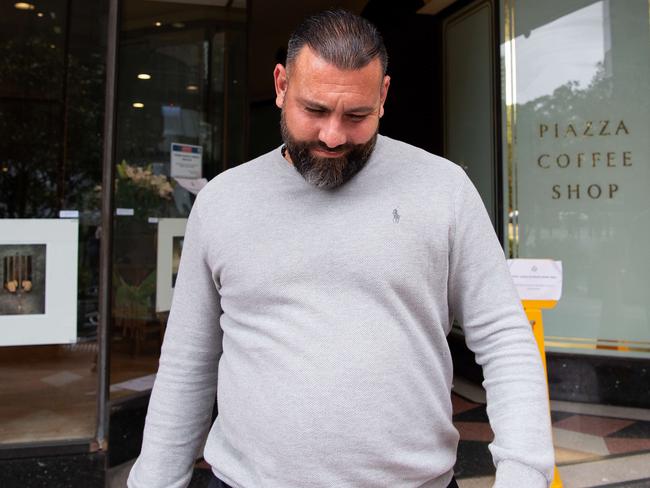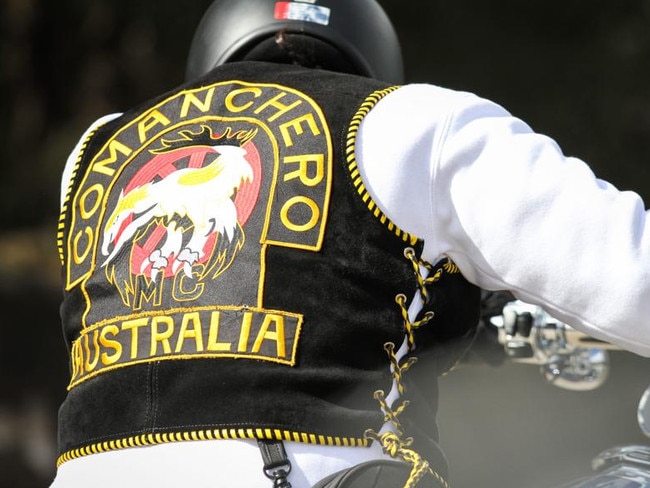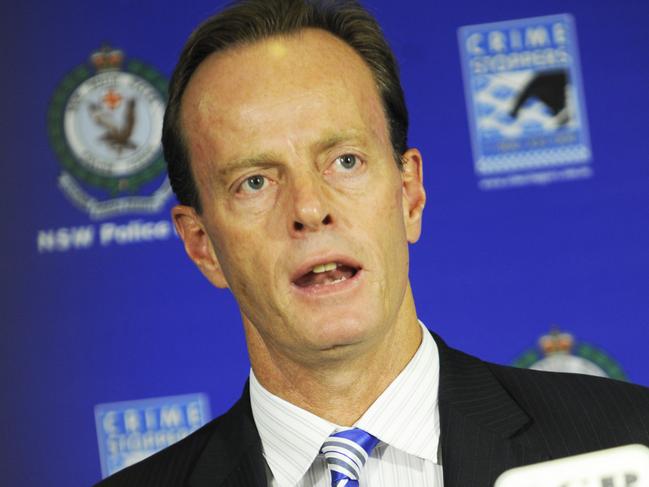Police crack $20m cocaine syndicate’s Ciphr phones
Organised crime groups have been left vulnerable after police cracked one of their most useful tools: mobile phones that use the hi-tech encrypted messaging network known as Ciphr.

Police & Courts
Don't miss out on the headlines from Police & Courts. Followed categories will be added to My News.
Police have sent shockwaves through underworld crime gangs after cracking their secret weapon, a heavily encrypted phone that uses the Ciphr network.
Ciphr features encryption technology so advanced that phones can be erased remotely and it blocks law enforcement from eavesdropping on messages, allowing anything from drug importations to murder to be arranged.
The shadowy Canadian company, which authorities claim has links to the Comanchero bikie gang in Australia, charges users thousands a month to subscribe to the software.
This is installed on certain Samsung and BlackBerry handsets but only once a customer has been approved following an online application process.
But its guarantee of absolute secrecy no longer holds true.
According to documents aired in the Downing Centre District Court, technology experts from the Australian Federal Police infiltrated three Ciphr phones being used by a syndicate that smuggled $24 million worth of cocaine into Sydney.

The evidence they collected resulted in Victorian man James Bahmad pleading guilty to his role in smuggling the 110kg cocaine shipment inside a generator to a Croydon Park address in 2018.
The police did not crack the Ciphr network, which is based on offshore servers. Instead, they cracked the handsets, which have significant layers of security technology to prevent access by unauthorised users.
Once inside, it is understood investigators accessed the settings and extended the length of time for messages to be automatically deleted.
“This is a major problem for any criminal who is arrested with a Ciphr phone — and there are a lot of people who have got them,” a source said.
Bahmad, 41, pleaded guilty last month to commercial drug supply and a pistol possession charge and will be sentenced on March 24.
This came after lawyers for the Commonwealth Director of Public Prosecutions revealed on September 15 that police had cracked the phones.

Two other men in the syndicate, Ray Farah and Elias Boustani, had already pleaded guilty to possessing a commercial quantity of cocaine and were sentenced to minimum jail terms of four years and nine months and five years respectively on May 7.
Bahmad had nowhere to go. Prosecutors possessed a treasure trove of text messages that showed he was involved in the drug operation.
When Bahmad’s case was last heard on October 16, prosecutor Sandra Lo told the court dozens of texts allegedly laid out the finer details of the trio’s failed plot.
“There were blocks of cocaine in photos being placed into the generator and discussions of how to transport it,” Ms Lo said.
An AFP spokesman declined to comment on the technique used to access the phone, saying it was a matter of “police methodology”.
When contacted, Bahmad’s lawyer declined to comment.
According to court documents, police told the prosecuting lawyers that “AFP Digital Forensics recently obtained access to the contents of the encrypted Ciphr phones which were seized from” the three men “at the time of their arrest.”
“Investigators have indicated that a preliminary review of the material had identified material that is relevant to (Bahmad’s) knowledge that a border controlled drug was within the generator prior to it being accessed,” the document said.

The development is a major blow to Australian crime figures for whom the phones are an essential business tool.
In the NSW Crime Commission’s 2018-19 annual report, Commissioner Peter Cotter wrote: “The use of encrypted communication by organised crime groups is widespread in Australia.”
The NSWCC 2017-18 annual report said: “Ciphr is another Canadian company with close links to one member of the Comanchero OMCG in Australia.”
Ciphr became one of the most prominent encrypted messaging services in Australia after a multinational investigation dismantled the previous market leader, Phantom Secure, and led to the arrest of its CEO.
Phantom Secure modified BlackBerry phones to provide them with military grade encryption.
The 2017-18 NSWCC annual report said: “Not a single legitimate customer was identified using the service, unsurprisingly, as it came at a cost of approximately $2,500 for every six months of use.”
“The network was shut down, causing disruption to the 22,000 worldwide customers, of whom more than 10,000 resided in Australia,” the report said.
MORE NEWS



